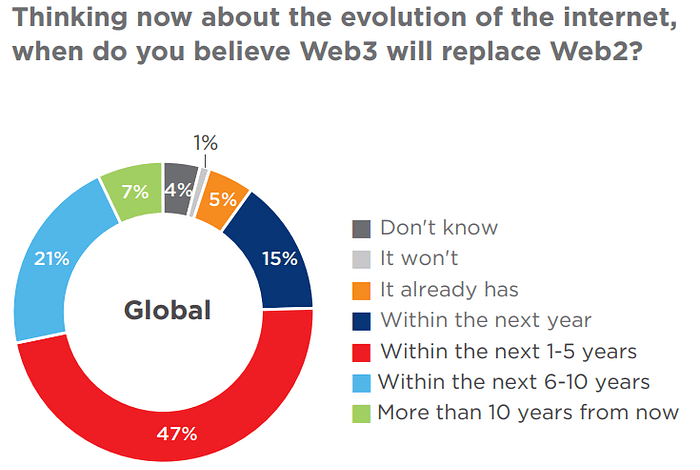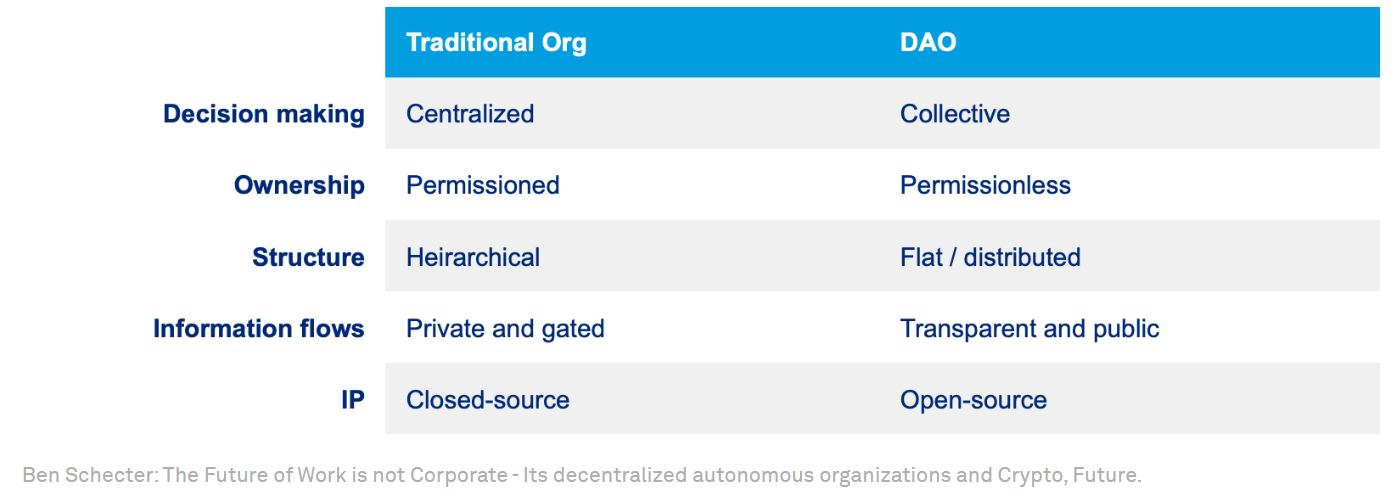There is no end to how digital technology is transforming our lives and Web3 is the latest idea we find ourselves trying to wrap our heads around. A next-gen version of the internet enabled by emerging technologies and concepts such as blockchain and decentralised autonomous organisations (DAOs), Web3 looks set to drive a fundamental change in the ownership and flow of information, and in turn, how our physical and virtual worlds function.
Among the key differences between Web2 – the internet as we know it today – and Web3 is the decentralisation of governance, data and entities. While Web3 appears synonymous with headline-grabbing developments in the metaverse, cryptocurrencies and non-fungible tokens (NFTs), its core principles of transparency and decentralisation hold significant potential for enterprise applications.
Certainly, the value of Web3 is not lost on businesses. Results from a global survey of IT leaders across diverse industries indicate 67% believe Web3 has already or will become mainstream in the next five years. And in line with early adoption trends seen in other areas of technology, APAC-based organisations seem most prepared to adapt to Web3, with 69% saying they have a strategy in place, compared to a global average of 56%.

Source: Equinix 2022 Global Tech Trends Survey
Already, rapid developments in building the necessary infrastructure, including blockchain applications and regulatory frameworks, are taking place across ASEAN countries such as Thailand and Vietnam. The region’s policymakers are also experimenting with central bank digital currencies (CBDCs) in a bid to create a more stable alternative to cryptocurrencies. Meanwhile, businesses are exploring the use of blockchain to deliver safer and cheaper digital payments.
Fewer ‘jobs’, more engaging work
One of most exciting ideas under discussion is how the decentralised and autonomous aspect of Web3 has the potential to change how future generations of Southeast Asians work.
Today, expectations for where and how work is performed have changed notably from a few years ago, with hybrid or remote work gaining in popularity. Gen Zers, who make up 24% of ASEAN’s population, are also demanding more agency and engagement with their work. Likewise, they are more open to considering opportunities in the gig economy, with its perception of flexible and independent labour.
These changing expectations, along with the region’s growing ranks of startups, could well fuel the growth of DAOs. Another mainstay of Web3, a DAO is run by a community of members with each individual having ownership of the organisation and equal say in its function and direction.

Unlike a traditional corporate hierarchy, the structure of a DAO aligns more closely with how Gen Z views work. Understandably, DAOs have begun making inroads into Southeast Asia, with several fintech and gaming startups such as Zignaly and GuildFi taking the lead.
Although not all organisations are suited to be set up as DAOs or adopt DAO-inspired practices, innovative businesses and those with a strong purpose are poised to leverage such structures to earn greater engagement and ownership from employees-turned-members.
Reimagining Southeast Asian cities with the metaverse
As Southeast Asia and its people evolve, the region’s cities also need a remake to better serve future needs. Singapore, the world’s first country to build a country-scale digital twin, is using its virtual avatar to aid the country’s transition to renewable energy and anticipate the impact of climate change on the city.
Indeed, there is a growing use of digital twins, or virtual replicas of physical assets, around the world for help with urban planning.
City planners and builders hope to augment digital copies with the immersive capabilities of the metaverse to better visualise daily activities, such as the flow of human and vehicular traffic, to come up with improved urban designs and policies. This is especially useful for ASEAN as it experiences rapid urbanisation, with an estimated 70 million more city dwellers by 2025, and explores ways to build sustainable and resilient cities.
A sustainable and responsive supply chain
Distributed ledger technologies (DLTs), of which blockchain is one, can enable secure and transparent transactions between entities without the need for an intermediary. This capability lends itself well to the development of a resilient and sustainable supply chain network in ASEAN as the region – a key component of many global businesses’ China+1 diversification strategy – looks to adapt.
The sustainability imperative, and demand for more agile supply chains in response to ecommerce growth within Southeast Asia, means fast access to information in a transparent manner is more critical than before.
Businesses that have adopted blockchain are leveraging it to enable the free flow of accurate and trusted data across their supply chain network while at the same time reducing fraud risks. Such benefits, along with the potential for reducing transaction costs, will make it easier for micro, small and medium-sized (MSME) enterprises – which make up more than 90% of businesses in ASEAN – to participate in the supply chain network, and add vibrancy to the region’s economy.
While Web3 technologies have the potential to transform Southeast Asia, the transition could prove challenging. The digital divide in many Southeast Asian countries could hinder progress and there is plenty of work needed to set up the necessary governance and infrastructure to address regulatory complexities that a decentralised internet will throw up.
However, as noted in a recent report by Deloitte on the metaverse in Asia, countries in the region are well on their way to actively working towards enabling a Web3 ecosystem.
Startup accelerators, too, are being set up to support promising Web3 ventures. Singapore-based Icetea Labs for instance, launched an accelerator programme targeted at Web3 startups in ASEAN, while Archipelago Labs has started to drive the growth of the Philippines’ Web3 ecosystem.
And given Southeast Asia’s pedigree of embracing new technology, the region looks set to lead as the world explores a new future for the internet.
World-class communications strategy and execution
Contact us to get started